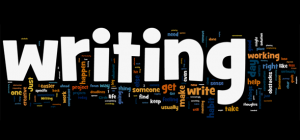In this month’s “Ask the Coach” article, I’m responding to a question from a reader about staying motivated and disciplined after receiving discouraging feedback.
Hi Jenna, I recently had a major setback: some pretty discouraging feedback from a reader. What are some tips for staying motivated and disciplined as a writer, particularly when facing rejection or setbacks? I’m writing on spec.
In my response, I share seven steps for handling setbacks and moving forward:
- Recognize the need for recovery time — and take it.
- Consider the source.
- Ask for outside support, depending on the severity of the situation.
- Reconnect with your inner motivation and original vision for the story.
- When you’re ready, review the feedback through your storyteller’s lens.
- Craft a revision plan (or not!) based on your decisions.
- Aim to build a writing practice or habit.
We all face painful or challenging feedback as writers. Not everyone will like our work. The key is deciding if and how to use the feedback we receive for maximum effect after we’ve given ourselves time and space to recover so we can keep writing with clear hearts and minds.
I’d love to answer them for you in my column.





 When you get burned out, it’s hard to do anything, let alone be creative. In this article, I outline seven steps you can take to go from creative burnout to creative recovery, so you can bring back the joy you feel when you create. This is an important skill to master because sometimes — even when we’re doing our very best to keep the creative well filled and do our writing at a sustainable pace — resistance, deadlines, life, and fate conspire to the point where we’re scrambling to finish a project under a big time crunch, binge-write, and exhaust ourselves as a result (sometimes doing so for days, weeks, even months on end). And once we’ve hit that bottom of the creative barrel, writing anything sounds entirely miserable.
When you get burned out, it’s hard to do anything, let alone be creative. In this article, I outline seven steps you can take to go from creative burnout to creative recovery, so you can bring back the joy you feel when you create. This is an important skill to master because sometimes — even when we’re doing our very best to keep the creative well filled and do our writing at a sustainable pace — resistance, deadlines, life, and fate conspire to the point where we’re scrambling to finish a project under a big time crunch, binge-write, and exhaust ourselves as a result (sometimes doing so for days, weeks, even months on end). And once we’ve hit that bottom of the creative barrel, writing anything sounds entirely miserable.  Sometimes as writers we get into a good writing practice but still manage to become complacent about actually FINISHING projects and moving on to the next one, rather just making small amounts of progress or endlessly rewriting and editing. When that happens, it’s time to recommit, and raise the bar of our own expectations. In this article, I discuss seven ways to stop phoning it in and require more of yourself as a writer.
Sometimes as writers we get into a good writing practice but still manage to become complacent about actually FINISHING projects and moving on to the next one, rather just making small amounts of progress or endlessly rewriting and editing. When that happens, it’s time to recommit, and raise the bar of our own expectations. In this article, I discuss seven ways to stop phoning it in and require more of yourself as a writer.  In this terrific guest post, Writer’s Circle coach and produced screenwriter Sarah Newman talks about how to stay in action and keep moving forward with our writing even when fear and uncertainty rear their ugly heads. She shares a list of seven great ways to get unstuck and keep writing that I’m sure you will find both handy and inspiring.
In this terrific guest post, Writer’s Circle coach and produced screenwriter Sarah Newman talks about how to stay in action and keep moving forward with our writing even when fear and uncertainty rear their ugly heads. She shares a list of seven great ways to get unstuck and keep writing that I’m sure you will find both handy and inspiring.  Our most recent “7’s” post was my seven-part series, called “Make 2015 Your Year to Write”. If you missed it, it’s not too late to work with the writing prompts in the series that will help you design and create goals and resolutions for your writing year (2015 or otherwise!) so that they are well-aligned with what you want in the big picture. That way you can make sure you’re working grounded in the reality of where you are right now as a writer and where you want to end up.
Our most recent “7’s” post was my seven-part series, called “Make 2015 Your Year to Write”. If you missed it, it’s not too late to work with the writing prompts in the series that will help you design and create goals and resolutions for your writing year (2015 or otherwise!) so that they are well-aligned with what you want in the big picture. That way you can make sure you’re working grounded in the reality of where you are right now as a writer and where you want to end up. 
 This article was your favorite “7” post, and it’s one of mine too. And it’s no surprise. Procrastination is one of the biggest things we struggle with as writers. In the piece I talk about the most common reasons for procrastination and seven ways to beat it, including some things you may not have thought of, like setting super small micro goals, telling others about what you’re doing to create accountability for yourself, and knowing when to STOP writing.
This article was your favorite “7” post, and it’s one of mine too. And it’s no surprise. Procrastination is one of the biggest things we struggle with as writers. In the piece I talk about the most common reasons for procrastination and seven ways to beat it, including some things you may not have thought of, like setting super small micro goals, telling others about what you’re doing to create accountability for yourself, and knowing when to STOP writing. 



